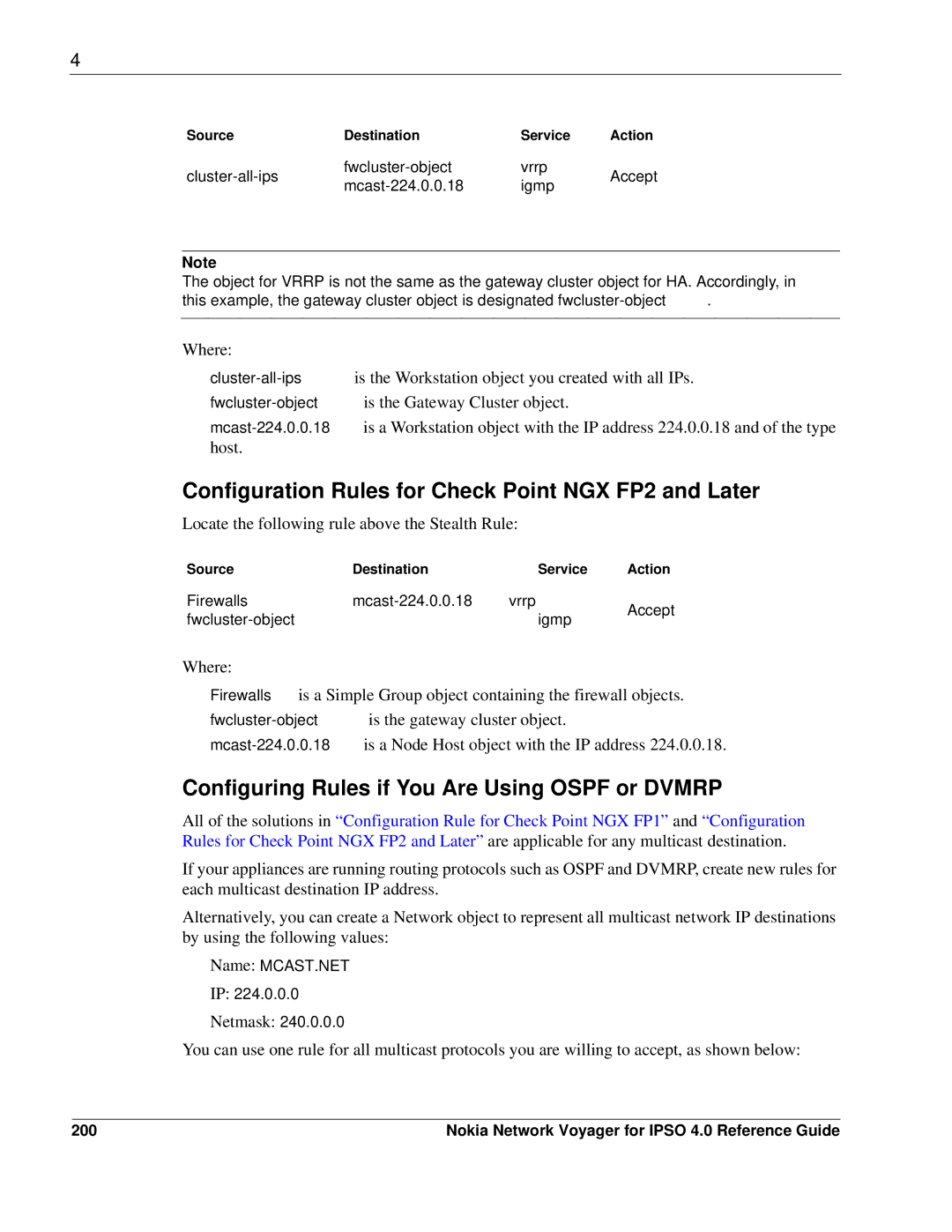
4
Source | Destination | Service | Action |
vrrp | Accept | ||
igmp |
Note
The object for VRRP is not the same as the gateway cluster object for HA. Accordingly, in this example, the gateway cluster object is designated
Where:
Configuration Rules for Check Point NGX FP2 and Later
Locate the following rule above the Stealth Rule:
Source | Destination | Service | Action |
Firewalls | vrrp | Accept | |
| igmp | ||
|
|
Where:
Firewalls is a Simple Group object containing the firewall objects.
Configuring Rules if You Are Using OSPF or DVMRP
All of the solutions in “Configuration Rule for Check Point NGX FP1” and “Configuration Rules for Check Point NGX FP2 and Later” are applicable for any multicast destination.
If your appliances are running routing protocols such as OSPF and DVMRP, create new rules for each multicast destination IP address.
Alternatively, you can create a Network object to represent all multicast network IP destinations by using the following values:
Name: MCAST.NET
IP: 224.0.0.0
Netmask: 240.0.0.0
You can use one rule for all multicast protocols you are willing to accept, as shown below:
200 | Nokia Network Voyager for IPSO 4.0 Reference Guide |
